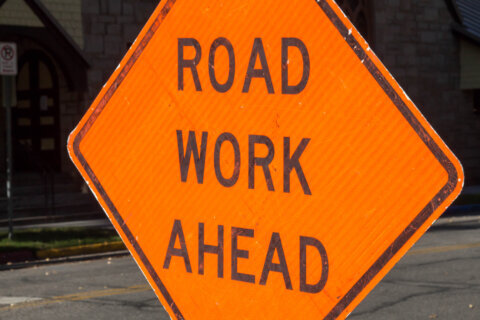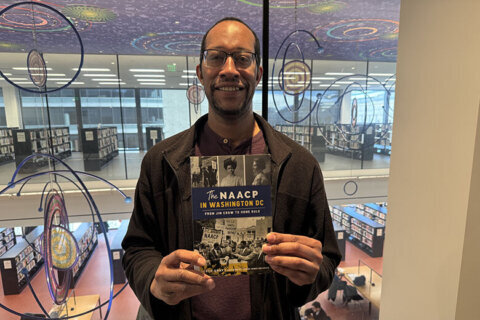Days after passing legislation aimed at expanding virtual learning flexibility in D.C. public and charter schools, council members on Friday were updated on school testing procedures and learned how many parents have been referred to the city’s child services agency because they’re not sending kids to school amid virus safety concerns.
City Administrator Kevin Donahue said more than 90 D.C. families who have kept their kids out of school over COVID-19 concerns have had their cases referred to child services for possible “educational neglect.”
Paul Kihn, the city’s deputy mayor for education, said that most of the 92 cases are still being investigated.
And a smaller number, “about 30 or so, have been referred to the educational neglect unit for a deeper investigation at this time,” Kihn said.
The update came after the council this week passed the Protecting Our Children Emergency Amendment Act of 2021, which narrowly expands access to virtual learning, requires more specific communication when a COVID-19 case is identified in a school and loosens the definition of an unexcused absence.
The legislation was influenced, in part, by hours of testimony from frustrated parents and educators who described a lack of communication and plan for virtual learning when a student has to quarantine. Several council members also described learning about child services referrals involving parents who kept kids home because they felt school protocols were inconsistent.
Parents also described issues with the school system’s saliva-based testing program, and added that the city hasn’t reached its goal of testing 10% of asymptomatic students.
In order for children in D.C. schools to properly undergo saliva-based COVID-19 testing, they can’t eat or drink an hour beforehand, but At-Large Council member Christina Henderson said students aren’t “necessarily being informed early enough to make that shift.”
She said the issue was a bigger deal in secondary schools, where kids can carry around snacks and drinks.
“How are we helping to sort of shift that so that at least our kids have a heads up to be able to say, ‘OK, I need to not drink anything for an hour so I can be tested appropriately?” Henderson said.
Kihn said D.C. has been working with the testing vendor, Shield T3, on how to better communicate that message.
He said students are “sometimes surprised” by the requirement.
“But we really do see this as a sort of ongoing process of education amongst the team both working on the test, but across the school communities, and we’ve put in place a number of ways to do that,” Kihn said.
Henderson also asked for a copy of the contract with Shield T3, since it’s not yet online, as well as how much the contract was worth and if it underwent bidding or was a sole source.
Donahue, the city administrator, said D.C. awarded the contract as an emergency contract to get testing started. He added that city agencies are “updating the contract, the specific requirements based on the current and potential future needs in the testing program.”
Donahue said D.C. Council members will get a copy of the contract Friday.
While testing levels in D.C. schools are not yet at 10%, Donahue said, the city has achieved 8.8% of all enrolled students in school.
“It continues to go up, as we’ve worked closely with the vendor to increase their levels of staffing. And, very importantly, as we’ve gotten better with scheduling at the schools, so that young people are ready for their testing when the vendor is there, as they are at 30 schools approximately per day,” Donahue said.
Kihn, the deputy mayor for education, said D.C. is “extremely satisfied with the vendor.”
He cited the District’s desire for pool testing, a PCR test, a fast turnaround and being able to identify a positive case without the need to retest.
“They have met all of those basic criteria for us, which we were looking for in a vendor,” Kihn said.
He added that there were times when a vendor staffer didn’t show up.
“And so they have upped their staffing. They’ve actually now hired additional people … they’ve actually hired a full-time manager, new administrator to monitor just this D.C. program, which they now have on site in D.C. So they’re being responsive to the feedback that we’ve given them. So I think we are satisfied,” Kihn said.
Vaccine exemptions for DC workers
With regard to the city’s vaccination requirement, Donahue said 267 city workers have requested vaccine exemptions.
Of the 70 requests that D.C. Human Resources has finished reviewing — which are almost entirely religious exemptions — none have been approved.
Donahue said it’s “due to lack of documentation demonstrating a sincerely held religious belief.”
“It is not merely filling out the paperwork, it’s actually providing some demonstration that the belief one holds is consistent with that religious belief or doctrine,” he added.
Future course of the pandemic
Council chairman Phil Mendelson asked DC Health’s Patrick Ashley when the city’s indoor mask requirement may end.
Ashley said he didn’t have an update, and when asked about the course the pandemic is taking, he said, “The trends we’re seeing in DC are indicative of trends seen across U.S.”
He advised the course of the pandemic locally is unclear, because the holidays are approaching and cooling temperatures may prompt people to spend more time indoors.








